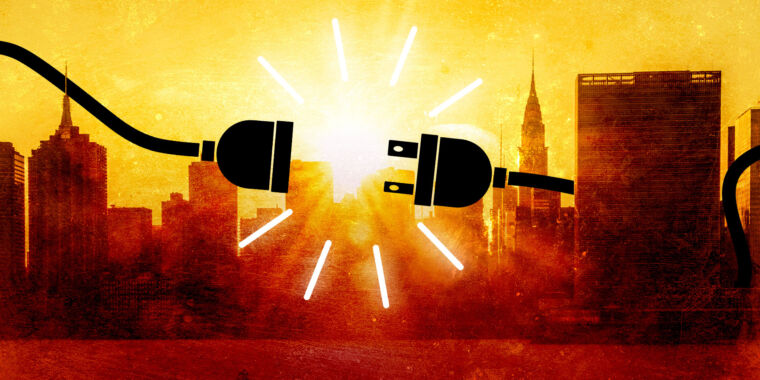Living Off the Grid in Manhattan for 8 Months
Core Concepts
Living off the grid in a city like Manhattan is possible and can inspire sustainability and resilience in urban areas.
Abstract
Living off the grid in Manhattan for 8 months, the author shares their journey of disconnecting from the electric grid to promote sustainability and personal responsibility. By gradually unplugging and making sustainable choices, they showcase how city dwellers can reduce power consumption, lower costs, and inspire innovation towards a more resilient grid system.
Customize Summary
Rewrite with AI
Generate Citations
Translate Source
To Another Language
Generate MindMap
from source content
Visit Source
arstechnica.com
I disconnected from the electric grid for 8 months—in Manhattan
Stats
My Con-Ed bills continue to show zero kilowatt-hours.
Electric bills consistently under $2 (not counting fixed connection charges of about $18).
Quotes
"Constraints breed creativity."
"Personal responsibility matters to me, so polluting less motivates me."
Key Insights Distilled From
by at arstechnica.com 01-13-2023
https://arstechnica.com/science/2023/01/i-disconnected-from-the-electric-grid-for-8-months-in-manhattan/
Deeper Inquiries
How can urban areas like Manhattan improve grid resilience based on this experiment?
The experiment of disconnecting from the electric grid in Manhattan highlights the potential for urban areas to enhance grid resilience by promoting individual sustainability practices. By encouraging residents to reduce their power consumption and explore alternative energy sources, cities like Manhattan can decrease their dependence on centralized grids. This shift towards decentralized energy production, such as solar and wind power, coupled with increased local resilience measures, could lead to a more robust and reliable grid system. Additionally, fostering a culture of self-sufficiency among city dwellers can help build community resilience during times of power outages or emergencies.
What are the potential challenges of living off the grid in a densely populated city?
Living off the grid in a densely populated city presents several challenges that individuals must navigate. One major obstacle is limited space for installing renewable energy systems like solar panels or wind turbines, which are essential for generating off-grid electricity. Additionally, strict building regulations and zoning laws in urban areas may restrict residents from implementing sustainable practices effectively. The high cost of living in cities like Manhattan can also pose financial barriers to investing in eco-friendly technologies or making lifestyle changes necessary for living off-grid. Furthermore, access to resources such as clean water and waste disposal can be more challenging in crowded urban environments compared to rural settings.
How can personal sustainability practices influence broader policy changes?
Personal sustainability practices play a crucial role in influencing broader policy changes by setting an example for others and demonstrating the feasibility of environmentally friendly behaviors. When individuals adopt sustainable habits such as reducing energy consumption, minimizing waste generation, or utilizing public transportation instead of private vehicles, they contribute to lowering overall carbon emissions and environmental impact. These collective actions create momentum for policymakers to implement regulations that support sustainable initiatives at a larger scale. By showcasing the benefits of personal sustainability through tangible results like reduced utility bills or improved air quality, individuals can inspire policymakers to prioritize green policies that promote long-term environmental conservation and climate action agendas.
0
